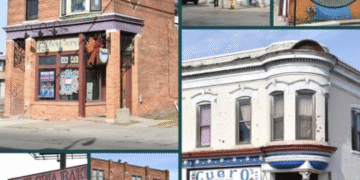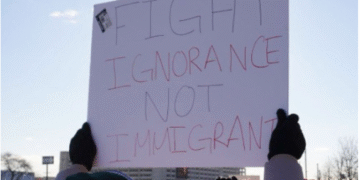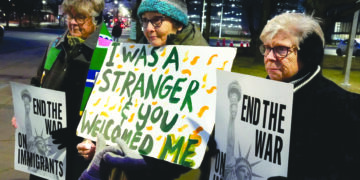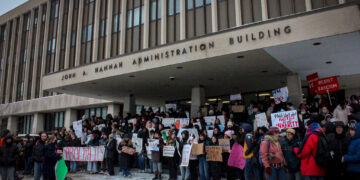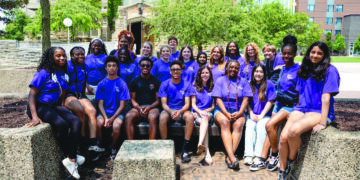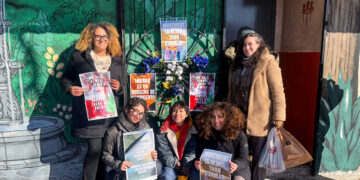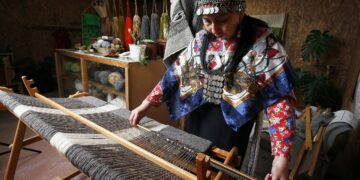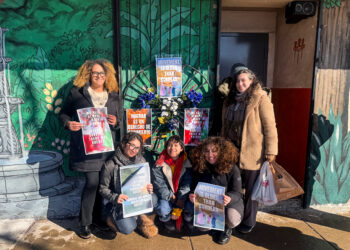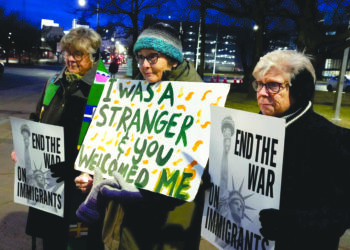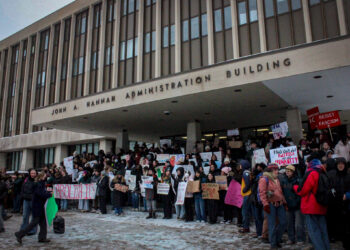The Michigan Department of Labor and Economic Opportunity (LEO)’s Office of Global Michigan has launched the Newcomer Rental Subsidy program that will provide temporary support for refugees and other newcomer populations coming to the state, thanks to support from the Michigan State Housing Development Authority (MSHDA) Housing and Community Development Fund and Office of Global Michigan’s investment of federal Office of Refugee Resettlement funding.
“We are thrilled to couple funding from MSHDA together with our Office of Global Michigan’s efforts to support one common goal – making Michigan a place where all people, businesses and communities have the economic means and personal freedoms to reach their full potential,” said Susan Corbin, LEO director, and MSHDA Board chair.
Affordable housing is a critical need for newly arriving refugees and for local community partners and sponsors who provide resettlement support. The subsidy program will give refugees, asylees and other newcomer populations the opportunity to apply for rental subsidy assistance, to help families successfully integrate into communities, become self-sufficient and thrive.
“The Newcomer Rental Subsidy program will increase access to better and more affordable housing opportunities while supporting a more rapid social integration for refugees and other newcomer populations in Michigan,” said Poppy Hernandez, Office of Global Michigan director. “Global Michigan is committed to providing support that builds welcoming, inclusive communities for those who choose our state as their new home.”
The program provides refugees and other newcomer population-eligible households with monthly rental assistance for up to 12 months, with eligibility heavily based on immigration status and household income. The amount of financial support per eligible household will range from $300 to $500 per month depending on household size.
Eligibility and Immigration Status
A beneficiary must have an eligible immigration status as defined by the Office of Refugee Resettlement which includes:
- Refugees
- Asylees
- Special Immigration Visa (SIV)
- Victims of Human Trafficking
- Cuban and Haitian entrants
- Afghan Nationals, and
- Ukrainian Humanitarian Parolees.
Other immigration statuses include individuals who arrived under the Cuban, Haitian, Nicaraguan and Venezuelan (CHNV) program; individuals who arrived under the Family Reunification Parole Process for El Salvador, Guatemala, Honduras, and Colombia, individuals with a pending asylum application, and other immigrant individuals on a case-by-case scenario.
Eligibility and Household Income
- Applicants must be renting individuals or households who are experiencing housing instability; and:
- Under 85% of the Federal Poverty Limit, or
- Live in Qualified Census Tract area, or
- Have an income at or below 60% of Area Median Income (AMI) and receive any of the following federal assistance:
- Temporary Assistance for Needy Families (TANF), Supplemental Nutrition Assistance Program (SNAP), Free and Reduced-Price Lunch (NSLP) and/or School Breakfast (SBP) programs, Medicare Part D Low-income Subsidies, Supplemental Security Income (SSI), Head Start and/or Early Head Start, Special Supplemental Nutrition Program for Women Infants, and Children (WIC), Low-Income Home Energy Assistance Program (LIHEAP), or Pell Grants.
Find answers to frequently asked questions, eligibility criteria and learn how to apply at https://www.michigan.gov/ogm/services/newcomer-rental-subsidy
Global Michigan Program Background
Office of Global Michigan, whose mission is to make Michigan welcoming and inclusive, in partnership with Michigan State Housing Development Authority launched the Newcomer Rental Subsidy program. The program is also supported in part, by federal award number SLFRP0127 awarded to the state of Michigan by the U.S. Department of the Treasury and in part by the Office of Global Michigan through allocation of federal Office of Refugee Resettlement awards.







